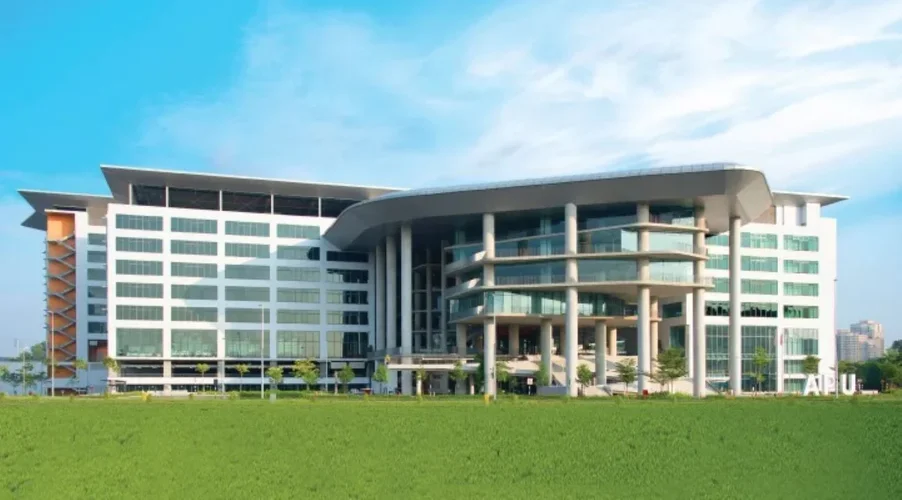Generative AI tools have the potential to impact over 300 million full-time jobs worldwide, with economists estimating that at least a quarter of these occupations' workload could be automated.
The rise of artificial intelligence (AI), particularly generative AI, is creating significant interest in its potential to transform industries and job markets.
AI enables machines to learn and make decisions based on data, enhancing autonomy and streamlining tasks.
Generative AI autonomously creates content, minimising the need for human intervention. However, its introduction increases job displacement – leading to income inequality.
A study conducted by Goldman Sachs revealed that generative AI tools have the potential to impact over 300 million full-time jobs worldwide, with economists estimating that at least a quarter of these occupations' workload could be automated.
This impending transformation underlines the need for individuals, especially aspiring undergraduates, to comprehend the evolving dynamics between technology and human employment to steer towards future-proof careers.
Despite concerns about job displacement, Asia Pacific University of Technology & Innovation (APU) School of Computing head Assoc Prof Dr Tan Chin Ike remains optimistic about the current development of AI.
“The First Industrial Revolution started in the 18th century with steam power and mechanisation, transforming agriculture and manufacturing,” says Tan.
“Similar anxieties about job displacement likely occurred then as they do now. In each major Industrial Revolution, technology plays an increasing role. Society must adapt and stay relevant to navigate these changes.”
As AI advances and adoption grows, it's poised to disrupt the tech industry. Yet, human involvement remains crucial for realising its full potential.
Referencing the Harvard Business Review, Tan acknowledges AI's rise will create opportunities for high-paying roles demanding complex tasks.
Human involvement remains crucial for AI to realise its full potential.
He reassures that jobs demanding high levels of social or emotional intelligence are unlikely to be surpassed by the rise of AI in the foreseeable future.
Echoing APU's commitment as the Premier Digital Tech Institution (PDTI) endorsed by the Malaysia Digital Economy Corporation (MDEC), Tan advocates for a focus on tech professions.
He emphasises the importance for tech students to not only grasp the evolution of AI but also to understand disruptive technologies to stay one step ahead.
Students must always be ready to learn and acquire new and relevant skills to position themselves favourably in the burgeoning job market.
AI at APU
APU's Bachelor of Computer Science (Hons) (Artificial Intelligence) degree programme exemplifies this commitment by offering AI-infused curriculums tailored to equip students with the necessary skills.
Through this programme, students master the fundamentals of computer science while delving into AI applications, including image recognition and natural language processing.
The programme aims to cultivate tech engineers capable of designing, developing, deploying and maintaining AI systems, empowering them to become proficient technology developers and future talents in AI.
AI graduates have diverse career options including becoming AI engineers, machine learning engineers, data engineers, robotics engineers, software engineers and data scientists.
According to Tan, to pursue a career in AI, one needs to build a strong foundation in programming as it is a universal language for translating human ideas into machine-executable actions.
Through robust application programming interfaces (APIs) and the advances in programming languages – especially the ability to streamline codes – professionals are now able to design, develop and test systems that augment AI techniques, such as machine learning, fuzzy logic, natural language processing and more.
AI enables machines to learn and make decisions based on the data, enhancing autonomy and streamlining tasks.
“Besides that, one needs to inculcate strong problem-solving and critical thinking skills that are essential for working with or developing complex AI solutions. With AI, teaching machines to understand languages, generate images, create content and predict patterns is akin to delving into a complex world of algorithms, reasoning and puzzles,” says Tan.
On top of the bachelor's degree with a specialism in AI, Tan pointed out that APU also offers a Master of Science in Artificial Intelligence degree, available either conventionally or through 100% online Open Distance Learning.
Additionally, numerous computing technology programmes offered by APU, though not specifically termed AI, are embedded with AI-related topics featuring the knowledge of how AI works or can be integrated into specific industries or disciplines.
While AI’s impact on automation will cause the displacement of workers, it can also create new job opportunities and spawn new industries as well.
The World Economic Forum states that by 2025, automation will disrupt 85 million jobs globally in medium and large businesses across 15 industries and 26 economies. However, as the global economy and job markets evolve, we will see 97 million new roles emerge.
In conclusion, as AI continues to reshape the job landscape, individuals must embrace opportunities to adapt and acquire the skills needed to thrive in the evolving digital economy.
With the right education and mindset, they can navigate the AI revolution and carve out successful, future-proof careers.
Students who enrol in the Bachelor of Computer Science (Hons) (Artificial Intelligence) degree programme will have the option to participate in the APU-DMU Dual Degree Scheme. Under this scheme, students will receive two degree certificates and transcripts upon graduation – one from APU and one from De Montfort University (DMU) in the UK.
DMU is renowned for its 150 years of experience in providing higher education. This dual degree enhances the employability of graduates, growing their competencies towards maintaining APU’s 100% employability track record.
As a PDTI, APU was also recognised with the Outstanding Faculty Award 2022 by MDEC in February 2023.
Discover what sets APU apart here
 +60142521561
+60142521561






